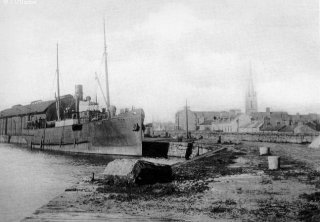In their desperation to retain the few bus conductors they had managed to recruit, the East Thanet Bus Company found accommodation for those who required it, with landladies in the immediate vicinity. They, of course, were of the xenophobic, nagging, take-it-or-leave-it type and, difficult as it may be to believe, we found it genuinely preferable to work as long hours as possible, in order to avoid their company. And their soggy dinners.
Soon I was doing twelve hour shifts and I welcomed all overtime. The Company was losing a fortune over uncollected fares. I had become, for all the wrong reasons, the most popular conductor in the district.
‘Is it free today, Paddy?
Or are you going to make us pay?’ was the usual refrain.
The only company I had all day was that of whichever driver I had been unwittingly teamed up with. Still, I only conversed with him at tea breaks or during extended stops at the various termini.
Perhaps I was wrong – but it seemed to me that, almost without exception, these drivers were brain-dead. There may have been Einsteins among them when first they applied, but the tedious monotony of the job soon stifled all initiative.
It was all the more startling then to meet my driver for the second week.
‘What are you reading, Paddy?’
‘Just this so-called smart card’, I indicated, holding it up.
‘No. At College.
Do you read any philosophy?’
I was certain he was about to take a hand out of me, so I hesitated before delivering an affirmative response.
‘What is your opinion of Aristotle’s Nichomacean Ethics?’ he enquired casually.
I had just purchased a copy and had read no more than two chapters. I admitted so.
‘Remarkable, really, how applicable it remains after two millennia. His subsidiary theses are taken as truisms now by most academic – and indeed other – establishments.
The need for moderation in the fulfilment of bodily appetites, for example. It may seem commonplace, but in his day there were rival philosophies – the Epicurian, for example – later paraphrased by another thinker as ‘Eat, Drink and Be Merry, for tomorrow we die!’
His fundamental conclusion – that happiness consists of the joyous pursuit of knowledge and self-fulfilment through intellectual and spiritual improvement – holds good till today.
Though the past half-millennium has seen the triumph rather of applied than of pure reasoning.
Don’t you agree?’
Now who felt brain-dead? I pondered.
My third-week driver would be another proposition altogether!
